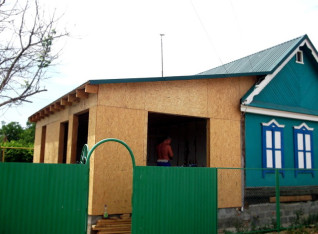Do you need the consent of the co-owner to register your place of residence?
In a world where shared ownership of real estate is becoming more common, the issue of residence registration takes on new dimensions. The question becomes especially relevant: is the consent of the co-owner required for such registration? The answer is not as simple as it may seem at first glance, especially when it comes to real estate that has undergone changes or has an atypical acquisition history.
First of all, it is important to understand: registering a place of residence is not just an entry in documents. This is a legal act confirming your connection to a specific address. In the case of joint ownership of real estate, this act may be perceived as an interference with the rights of other co-owners. Therefore, in most cases, the consent of the co-owner for registration is really necessary.
But what if the property has special features? For example, an apartment in which you are a co-owner has undergone redevelopment. You may have combined rooms or changed their purpose. In this case, the registration issue becomes more complicated. Legalization of redevelopment is a complex process, including obtaining permits and preparing new technical documentation. Until this process is completed, the apartment does not legally correspond to its actual condition.
In such a situation, even if the co-owner agrees to your registration, problems may arise. When checking the documents, there will be a discrepancy between the recorded planning and reality. Therefore, the first priority is to design the redevelopment. And here, too, the consent of all co-owners is required, because such changes concern common property.
Another scenario is registration in a building that itself needs legalization. This could be an old private house built without proper permits, or a new building with violations. In both cases, legalizing the building is a critical step. This process includes technical expertise, obtaining retrospective permits and entering the property into the real estate register.
If you are a co-owner of such a house and want to register in it, the consent of the other owners is not enough. First you need to go through the building registration procedure. Until its completion, the house legally “does not exist,” which means registration in it is impossible. At the same time, to legitimize the building, the consent of all co-owners is also required, since this concerns their rights and obligations.
Particular attention should be paid to cases where the property has been extended. This could be the addition of an additional floor, the arrangement of an attic, or the construction of a new extension. Such changes significantly increase the living space. However, if the legalization of the superstructure or extension does not occur, legally this space “does not exist.”
In this context, even if you are one of the owners and want to register in the new part of the house, a conflict will arise. The consent of the co-owners to register will not matter, since the address at which you want to register is not officially available. Therefore, the first priority is the design of the superstructure or extension. And again, this requires the consent of all co-owners.
An interesting aspect is the registration of real estate acquired through non-traditional means. For example, you and your partner purchased a house by acquisitive prescription. This means that you have owned the property openly and in good faith for a long time. However, the mere fact of such ownership does not automatically make you an owner. First a court decision is required, and then registration of ownership.
In such a situation, the question of consent to register your place of residence arises even before you officially become co-owners. Without completing the ownership procedure, any registration is not possible, even if you both want it. Therefore, the consent of the partner is important not so much for the registration itself, but for going through the entire procedure for recognizing ownership rights.
In rural areas, situations often occur when a residential building is located on a land plot. If such a share is in common ownership and you want to register in the house, additional complexity arises. Registration of a share as a place of residence requires not only the consent of all co-owners of the land, but also recognition of the house as a residential property. Therefore, two approvals are required here: for land registration and building registration.
It is important to remember that co-ownership is not only rights, but also responsibility. If you register a shared property without the proper procedures (such as an unauthorized extension), you risk causing problems for all owners. In the event of inspections or emergencies, it may turn out that the part “does not exist”. This may result in fines or denial of benefits from insurance companies.
Separately, mention should be made of the moral aspect. Even if legally you can register without the consent of the co-owner (for example, if this provided for in the common property agreement), the ethical side of the issue should be taken into account. Registration can change the mode of use of the property, affect utility bills, and the right to use common spaces. Ignoring the opinion of a co-owner can lead to




































